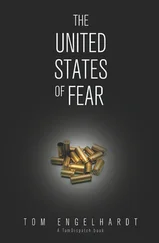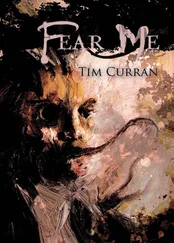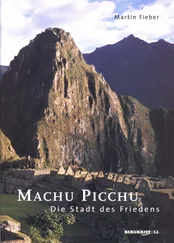“Ha!” he said. “Caught! I’ll take a shot at him before you go. .”
“Shut up,” Tull said. He pointed his pistol at this short one, who halted immediately.
“What are you going to do with him?” said the first minstrel, the one from the day before.
“What do you care what I’m going to do with him?” Tull said. “What do you think I’m going to do with him? If you don’t want this place shut down, get some rope and be quiet.”
This first one hesitated, but the short fiddler said, “I’ll help. I’ll be glad to,” and walked to an area behind a divan. Tull kept his eye on the man, who pushed away some pieces of stage detritus, props, a sign, a pair of Indian clubs. He hefted a coil of line and brought it to the stranger.
“You hold him,” Tull said. To the large man he said, “You give me a hand tying.”
“I will not,” the big man said.
Tull focused on the big man, his energy darkening, then brightening in recognition. “Hey,” he said. “You play a good banjo. Just stand over there by the door and be quiet while we get this done.” To the boy, then, he said, “Remember, Joseph, your daddy said dead or alive. I’m happy either way.” He removed his hat and set it on a chair.
The fiddler held the boy’s legs as Tull tied them, quickly, his pistol within reach next to him on the floor. The others knew enough to stay put, at least, Tull thought. “I’m glad you all know the law,” he said. “You almost had me, Joseph. I was getting ready to head out of town and tell your daddy you had slipped away. You’re not as smart as they said.”
When he was finished with the legs, Tull pushed the boy out of the chair and tripped him so that he was face-down on the floor, and the short minstrel knelt on the boy’s shoulders. Tull looked around and said, “Get me some more rope.”
“I can’t breathe,” the boy said. The fiddler had his wrists pinned behind his back.
“Ease up on him a little,” Tull said.
The fiddler made some slight adjustment and said, to the boy, “They ought to hang you up and skin you. There, Douglass. What did I tell you? What did I say?”
“I don’t want you talking,” Tull said. “Where’s the rope?” He bent over to perform some adjustments on the knots around the boy’s legs.
“I’ll get it,” somebody said.
Eagan held Henry face-down in an arm lock, Mulligan stood by the door, and I stood to get another coil of rope. What else was there to do? And this, I thought, is how one forfeits one’s soul. I could not bear to look at Henry. I would think that the image of such a scene would make God ashamed of his own creation, but I have become convinced, through many an ensuing year, that God has no shame.
What, after all, did I owe Henry? Did I force him at gunpoint to perform with us? Had I lied to him? Misrepresented the offer? Had he saved my life? Rescued me from a mob? I had not tricked him. I owed him nothing. I had built this troupe and thereby earned my freedom in this world of illusion, and I would not give it up. These men depended on the troupe as much as I did. We had bought ourselves time by presenting Henry, had regained our audience. With some diligence and luck we would keep their attention with other attractions. Henry would be taken away, captive, and we would remain free. I thought of how I had seen him perform on the street the first time. I thought of what it might have cost him to get himself free, to Philadelphia, the risks, the privation. Whom had he left behind? Where would he be taken? Was it my concern? My responsibility was to my men. . I was in a fever. My partner, John, watched me as I stepped behind the divan to get the rope. I looked across the room at him, and our eyes met, and I hesitated for a moment. I saw him nod, very slightly. Eagan was taunting Henry.
I got hold of the required item and carried it across the room to where the stranger was bent over, tightening the ropes, and I swung that club as hard as I could into the base of the stranger’s skull. I had kicked a rat once and felt the surprising weight of it against my toe, heard it expel something between a grunt and a squeal, and this figure made a similar sound as a mist of blood shot from his nose. Time slowed down, and I watched him fall forward at Henry’s feet, like an orange onto a stack of towels, and roll to one side, unconscious. I watched as if from a tower, as if I were another, witnessing a riot in the square below. Then I went to strike him again, like a watermelon, turn his head to pulp. I would kill him. Mulligan was in front of me, blocking me. I recognized him, at least.
“Don’t,” he said. “James. .”
I knew him; he was there. His hand was on my arm, and his eyes looked into mine as if from a distance.
“You’ll go to jail for this!” Eagan was saying. “I’ll see to it.”
Mulligan said, “I will put an end to you if you say another word, Michael.” He bent down and retrieved the pistol. “Sit and be quiet, or you’ll be sorry.”
The stranger was unconscious; a trickle of blood ran from his left nostril down his cheek and into his long, greasy hair. He was breathing. Henry had rolled onto his side, and Mulligan knelt to untie him. I was looking at Henry struggling to get free even faster. Then he was untied, and standing, and Mulligan was pulling some banknotes from his pocket, but before he could offer them, Henry was gone — out the door, disappeared, just that quickly, not a goodbye, just gone. Gone. I had not been able to utter a word to him.
Somewhere overhead the stars wheeled in the evening sky, unseen. I was shaking; I was so cold. I could not stop shaking. Mulligan stayed with me and very shortly two men identifying themselves as police officers arrived, no more than two minutes after I had struck the stranger. One of them, with sandy hair and long side whiskers, seemed to recognize the still-unconscious figure.
“You did this?” he said.
“Yes,” I said.
He nodded, mulling it. His companion, a half-wit wearing an odd hat, said, “He gave poor Vic the beating. We spent the entire day for two dollars.”
I was taken into custody, and put in the city jail for a week, until, through the efforts of a businessman I did not even know — a Negro, in the bargain, named Still — I was released, my crime deemed self-defense. Apparently he had had some dealings, himself, with Henry. I never found out what happened to the bounty hunter; all I was told was that he had not died, and had left the city.
But it was the end of the Virginia Harmonists.
Eagan, Powell, and Burke formed their own troupe. Mulligan left, for Boston, inviting me to come with him and establish a new troupe there. But I had lost my taste for minstrelsy. Not for the music, but for the overwhelming lie upon which it fed. Some fluid that had surrounded me had evaporated. The magic Henry had summoned had ended in such violence and discord, and I could not help but imagine all the others in similar straits, or worse. Seeing it had closed off an avenue which had been my road in life, and I was at a loss, as if I were suddenly unable to write, or walk.
I took a job for a while as stage manager at Sanford’s, but the presence of all that enforced gaiety onstage in contrast with the reality behind it, and the sheer tedium involved in my job, chafed intolerably. Things began to seem pointless, as pointless as they had seemed at the farm. I struggled to remain at the theater, but I felt that if I did so I would cede the final measure of any dream I had sustained through the years, destroy my past as well as whatever the future might bring, and at length I quit. And then, for a time, I drifted.
Not quite a year later, I was walking along Front Street. I had fallen on difficult times, had moved from my apartments off Washington Square into more affordable quarters, and I often spent the afternoons walking aimlessly through the Philadelphia streets, hoping, I suppose, that I might once again stumble upon some unexpected grace, some magic that could assure me that everything I saw was more than a veneer with nothing behind it, that a caring God still existed.
Читать дальше










